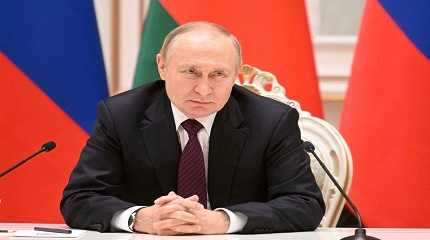
PRAGUE, July 19 (Reuters) - The head of Britain's MI6 foreign spy service said on Wednesday last month's mutiny by Russian mercenaries showed there were 'deep fractures' surrounding the Kremlin, and invited Russians appalled by the war in Ukraine to come spy for Britain.
In just his second public speech since becoming chief of the Secret Intelligence Service in 2020, Richard Moore said there appeared to be little prospect of Russia regaining momentum in Ukraine.
Speaking at the British embassy in Prague, Moore, officially codenamed "C", likened the situation in Ukraine to the Prague Spring in 1968 when Soviet tanks quashed liberalising reforms.
"As they witness the venality, infighting and callous incompetence of their leaders ... many Russians are wrestling with the same dilemmas as their predecessors did in 1968," he said.
"I invite them to do what others have done this past 18 months and join hands with us. Our door is always open ... Their secrets will be safe with us and together we will work to bring the bloodshed to an end."
In his speech and in a subsequent interview, Moore said last month's armed mutiny by Wagner mercenary group founder Yevgeny Prigozhin had exposed the "inexorable decay" of Putin's "unstable autocracy".
"If you look at Putin's behaviour on that day, Prigozhin started off as a traitor at breakfast, he'd been pardoned by supper and two days later he'd been invited for tea. There are some things that even the chief of MI6 find a little difficult to try and interpret," Moore said.
"I don't think you'd need all the resources of MI6 to conclude there are deep fractures in the Russian elite around Putin."
The spy chief said he was optimistic about Ukraine's counter-offensive. He described Iran's decision to supply Moscow with drones for the conflict as "unconscionable", saying it had provoked internal quarrels at the highest level in Tehran.
Moore also spoke about the challenges posed by artificial intelligence (AI). His teams were using it to augment their work, including disrupting the flow of weapons to Russia, but he said authoritarian regimes were using it to spread fake news and disinformation.
"I expect we will increasingly be tasked with obtaining evidence on how hostile states are using AI in damaging, reckless and unethical ways," he said.
Despite the focus on Russia, Moore said his service devoted more resources to China than any other nation.




